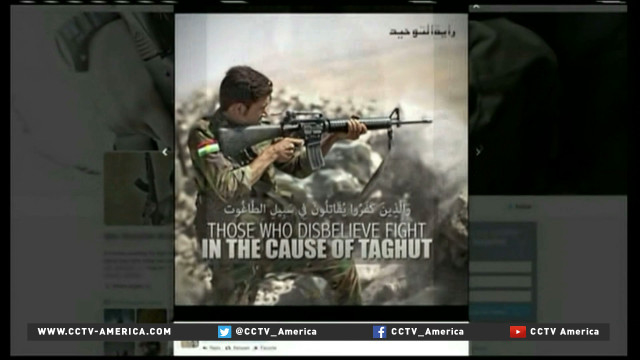Countries around the world are working to find ways to prevent the radicalization of their citizens and immigrants. CCTV America’s Nathan King reported this story from Washington, D.C.
Turkish security forces have stepped up border patrols to stem the flow of foreign jihadists flooding into Syria. Mosques in London and France are opening their doors to inform the public about the peaceful nature of Islam.
But can the radicalization of Muslim youth, which led to last month’s deadly attacks in France, be prevented?
From Paris to Kunming, China, to Peshawar, Pakistan, there is a renewed emphasis to reach out to Muslim youth before they make the fateful decision to carry out acts of terror.

Mubin Shaikh was born and raised in Canada.
During his teenage years, in an attempt to straighten out his life, he focused on becoming a better Muslim.
“So at the age of 19, I went away to India and Pakistan. I become radicalized after I met the Taliban in Pakistan. When I came back in 1995, I became a supporter of the Jihadi culture,” Mubin Shaikh, author of “Undercover Jihadi” said.
Ignoring temptation, Shaikh ended up training as a counter-terrorism operative in Canada. In 2006, he infiltrated and foiled an al-Qaida-inspired cell plotting to attack the Canadian Parliament and take hostages.
De-radicalization is possible, he said.
“De-radicalization is a full cognitive shift. A person no longer believes something,” Shaikh said. “In terms of what works, it’s a mixture of ideology. It’s a mix of peer groups and support by parents and friends and really giving these young people a chance to contribute.”
Teams from countries including France and the U.S. are working to intervene before someone commits an act of terrorism. For example, they monitor Jihadi websites and radical sermons such as those of Anwar al-Awlaki to determine involvement by extremists. Instead of charging Jihadists with terrorism, officials hope for rehabilitation.
Critics of disengagement programs said they treat the symptom rather than the disease, and that radical preaching in mosques across the world should be tackled first.
Many in the Muslim community are redoubling efforts to try and reach out to its young people while acknowledging there is a lot at stake when working to combat radicalization.
“With no doubt, what happened in Paris, has shaken the Muslim community in the U.S. and around the world. In a way it’s good, in a way it’s bad,” Georgetown University Muslim Chaplin Imam Yahya Hendi said. “It’s good because it’s telling us Muslims that we still have bad people who act in the name of Islam, violently. In a way, it’s waking us up to say wrong is wrong, right is right. We need to take a stand against violence. We need to take a united stand against violence.”
Whether de-radicalization programs can work is an especially important point as the United States continues to release prisoners from Guantanamo Bay. Several of these former prisoners have since rejoined the militant life, and plotted attacks.

 CGTN America
CGTN America
